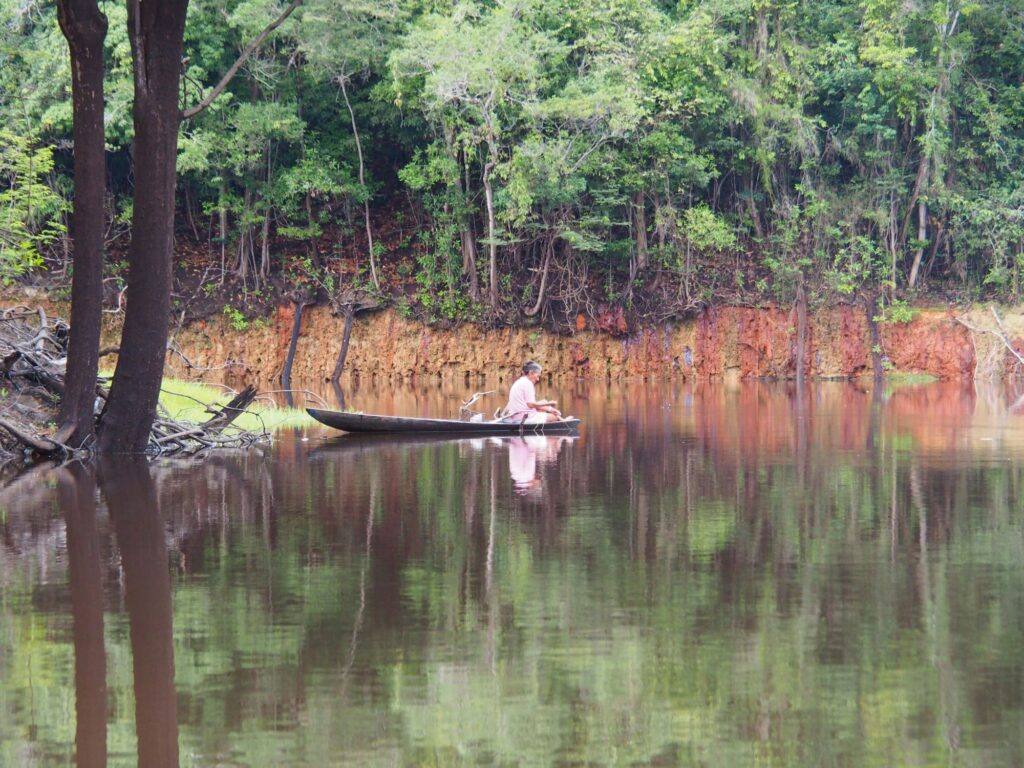How can indigenous and rural populations strengthen their food security and land rights? That is the question when actors from across Latin America join forces in SIANI’s new expert group on Rural land rights and food security in a changing climate. The group is supported by SIPRI and the Friedrich Ebert Foundation and hopes to develop a regional response to a rapidly growing problem.
Conflicts about land and livelihoods are on the rise across Latin America. Many rural and indigenous populations risk food insecurity and violent displacement when governments encourage mining or logging on their lands. Local communities face immediate threats and violence, as well as long-term challenges such as food insecurity, threatened biodiversity, and decreased food sovereignty. The situation is exacerbated by climate change and social inequality.
To address this, a working group with members from across Latin America was founded in 2022, with support from the Stockholm International Peace Research Institute (SIPRI) and the Friedrich Ebert Foundation. It has now become one of SIANI’s expert groups and serves as a platform for many different actors to share experiences and speak with a unified voice. The expert group Rural land rights and food security in a changing climate – rethinking rural development approaches in Latin America can help decision-makers understand new challenges and find sustainable solutions.
We asked Dr Farah Hegazi, Researcher in the SIPRI Climate Change and Risk Programme, to answer some questions regarding the project.
What is your project about?
Our project aims to explore successful strategies and craft innovative approaches to address the critical challenges related to land rights, food security, and food sovereignty within Latin America.
Who are you in the expert group?
The group is led by SIPRI and the Friedrich Ebert Foundation; members include a wide range of NGOs, activists, researchers, and academics from 10 countries in Latin America.
What type of change can be achieved through your project?
As this project aims to strengthen an already existing network of Latin American experts, the project will continue to provide them with a platform to engage with each other as well as deepen and exchange their knowledge from their varying perspectives on the challenges. Furthermore, the project aims to influence policymakers and processes by drawing attention to the issues affecting the region. The expert group will also propose potential solutions for a just distribution of land rights, food security, and food sovereignty.
Which activities do you plan?
We want to develop a short brief on food security and land rights to be able to engage with both policymakers and international development actors across Latin America. Representatives of the expert group will present their findings at the Stockholm Forum on Peace and Development, which is a platform for engagement and outreach with EU actors, and will aim to brief relevant policy actors in European capitals. Our third planned activity is to attend the Inter-American Commission on Human Rights through conveying a thematic hearing or a consultative opinion on the issues our group is working with, if feasible.
Why is this important?
Because Latin America faces a multitude of security challenges, which transcend national borders, and threaten livelihoods, food security, and biodiversity.
Latin America is a region of unparalleled ecological diversity, encompassing tropical rainforests, arid deserts, and expansive coastlines. However, countries are highly susceptible to the impacts of climate change and environmental degradation. These challenges are further exacerbated by social inequalities and political instability, including violence and armed conflicts. Many conflicts are linked to the extraction of natural resources or are related to drug trafficking, human trafficking, and smuggling, which has created powerful criminal economies.
The high level of violence has made Latin America very dangerous for environmental defenders and the rural and indigenous populations. So, providing a platform for rural and indigenous communities to voice their concerns, their vision for the future, and their solutions to a policy audience is vital for affecting change.
How can I learn more about this topic?
The group recently published a report entitled Environmental and Climate Justice, and the Dynamics of Violence in Latin America: Perspectives from a Regional Working Group on Climate Change, the Environment, Peace and Security in Latin America.
Members also explain the current situation in a series of YouTube videos: Environmental and climate justice, and the dynamics of violence in Latin America.
Furthermore, the expert group will continuously share their experiences through SIANI’s website and social media channels. The coordinators can also be contacted directly.
